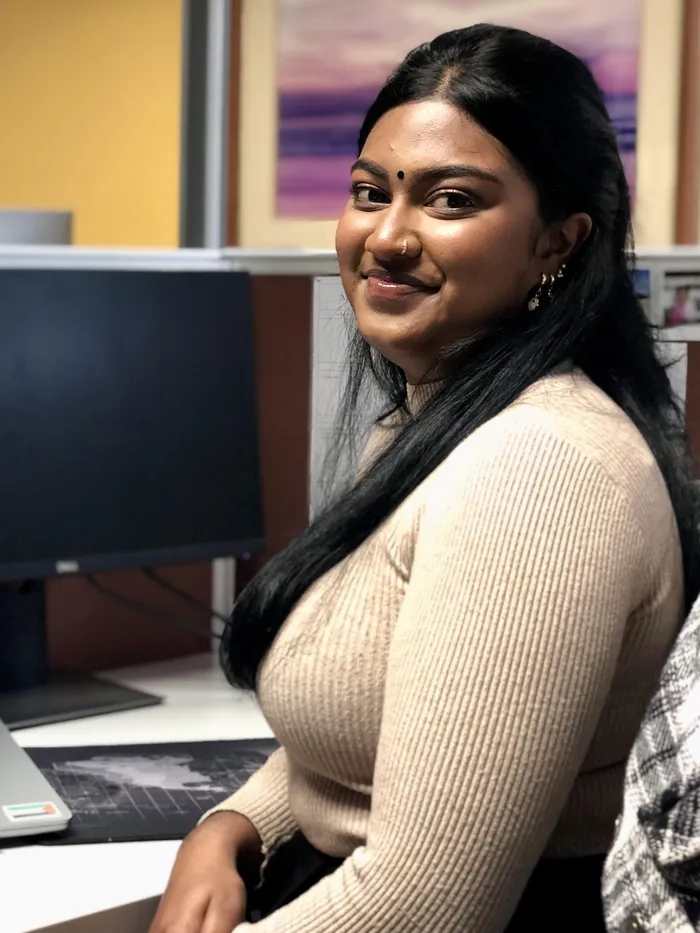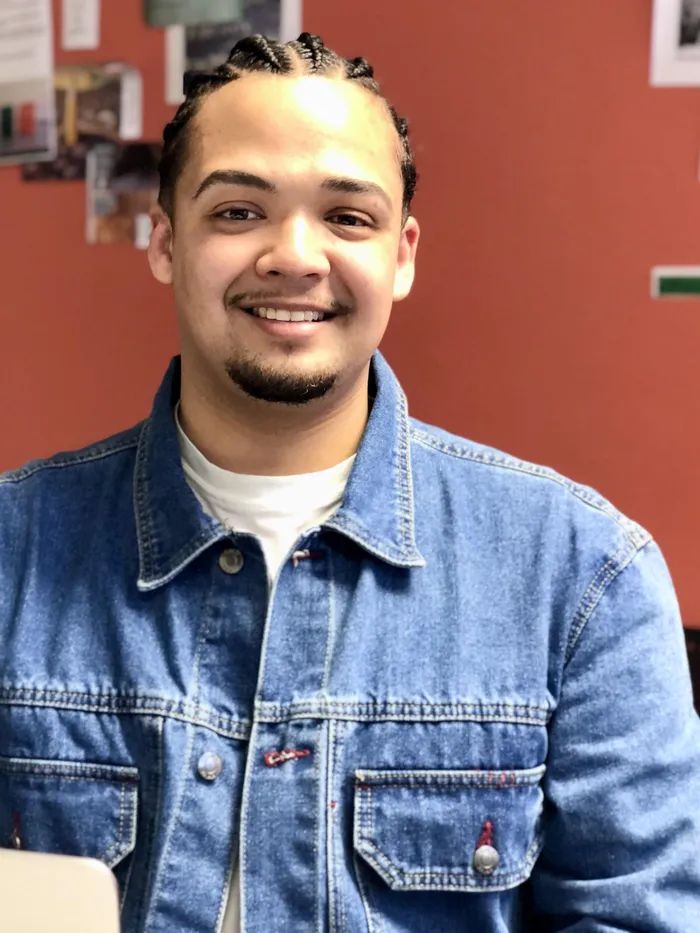
Yaadein Padiachy.
Image: Desmond Thompson
Desmond Thompson
The struggle for justice takes many forms. For some, it unfolds in the contested corridors of international law; for others, in quiet defiance in kitchens and mosques. At Stellenbosch University’s (SU) Centre for the Study of the Afterlife of Violence and the Reparative Quest (AVReQ), two master’s students are bringing these worlds together – exposing the self-serving politics of how atrocities are defined; and excavating neglected histories of resistance.
Genocide
New findings on ‘genocide’ September brought two major interventions in the global debate on the Middle East. At the start of the month, the International Association of Genocide Scholars said that Israel’s actions in Gaza met the legal definition of genocide under the 1948 United Nations (UN) Genocide Convention. Two weeks later, a UN Commission of Inquiry made a similar finding, and said senior Israeli leaders should be held responsible. Israel rejected both assessments. The government maintains its military campaign is not aimed at civilians but at Hamas, following its 7 October 2023 attacks in Israel. For AVReQ fellow Yaadein Padiachy, 23, who is doing her master’s in Political Science, these developments shift how she approaches one of her case studies. “I now look at Palestine as a contested ‘genocide’,” she says.
The weight of a word
The working title of Padiachy’s thesis she interrogates why some mass atrocities are labelled “genocide” while others are not. “I look at it through the work of Raphael Lemkin, who coined the term ‘genocide,’ and Hersch Lauterpacht, who pushed ‘crimes against humanity’ – both during the 1940s, particularly in the context of the Nuremberg Trials after World War II,” she says.
Four cases anchor her study: atrocities in Palestine, as well as in Nazi-occupied Europe, in Armenia and in Guatemala. Across these examples she shows how the narrowing of the Genocide Convention to exclude cultural destruction has enabled states to deny responsibility until it is “too late.” Padiachy’s interest in genocide studies is rooted in lived solidarity.
“Palestine has become both a political and academic commitment for me,” she explains. “It began with kinship – recognising people of colour experiencing oppression. I then became involved in pro-Palestinian groups, and when it came to my master’s, I chose a related topic.”

Irshaad Suliman.
Image: Desmond Thompson
Excavating forgotten struggles
Padiachy's AVReQ peer Irshaad Suliman is documenting overlooked resistance at the local level. The master’s student in History, his thesis traces his interest back to his time in the Robben Island Mayibuye Archives when he did his honours at UWC. There he encountered smuggled notes written by Imam Abdullah Haron during his detention. The religious leader became a martyr for Cape Muslim resistance when he died in police custody in1969, with his funeral drawing 30,000 mourners. But Suliman is less interested in retelling Haron’s story than in recovering the many others who resisted apartheid in quieter ways. “The ‘big R’ is someone like Imam Haron,” he explains. “But there was also everyday, ‘small r’ resistance – in homes, schools, mosques and kitchens. For example, organisations like Nakhlistan cooked food for the community as a form of support and quiet resistance.”
Suliman’s research highlights teachers, students, women and community leaders whose contributions have been overlooked in narratives that focus on icons. Figures such as Boeta Dawood Khan, Noor Mohamed Fakie, Khalid Desai and Nabil Swart form part of the story he is recovering. He situates Cape Muslim resistance in a long historical arc. He points out that the first Muslims were brought to the Cape after Dutch East India Company official Jan van Riebeeck established a refreshment station here in 1652, which would in time grow into a colony. Exiles and slaves imported from Asia and Africa brought a political consciousness with them that would echo in later struggles against apartheid.
Personal roots, shared purpose
Both students’ academic paths are inseparable from their personal histories. Padiachy grew up mainly in Alberton, in the south of Johannesburg. For her, the injustice faced by her father, Pregie, as a child is a powerful inspiration: “By the age of seven, he had lost both his parents. He and his siblings were scattered among relatives in different parts of the country because a proper welfare system was not in place for everyone.” Her mother, Abigail, descends from indentured labourers brought to South Africa from India. Both experiences impressed on her how easily lives and cultures can be dismissed or erased. Suliman was raised in Boston, Bellville, after first living in nearby Kuils River. He recalls how his love of history began on family camping trips with his dad, Rashaad, and his mum, Afia. Visiting national parks and heritage sites sparked his fascination with the country and its past.
Parallel quests, future paths
Although one looks outward to the UN and the other inward to Cape Town, their work intersects. Both examine how power shapes whose suffering is acknowledged and whose is ignored. Padiachy notes: “I don’t expect my thesis to make headlines in The Hague, but I hope it can help clear up the conceptual fog around ‘genocide’.”
Suliman shares this commitment, though his focus is on history and heritage. “I may go back to archives or museums. I’m particularly interested in restitution through the return of looted artefacts to Africa,” he says. “My main contributionis that if we focus only on the ‘big names,’ we miss the many others who contributed. Their stories deserve to be told.”
Heritage and healing
Padiachy and Suliman have found an academic home at AVReQ which studies violence and its legacies – physical, structural, symbolic, generational – with healing at the core of its mission. In this setting, their work resonates with each other. Their research speaks directly to Heritage Month in South Africa and reminds us that the fight for recognition – whether on the world stage or in local communities – is part of the struggle to repair humanity’s wounds.
*Thompson is a freelance journalist.